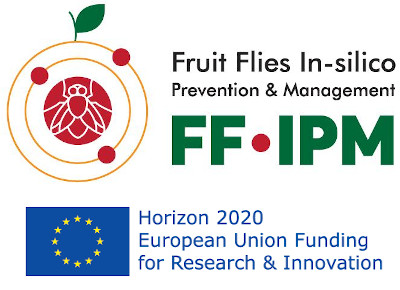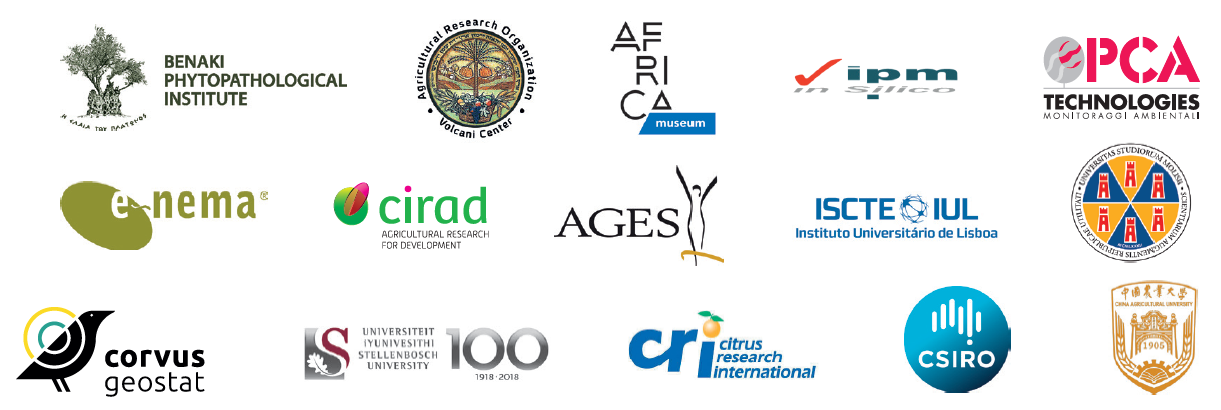
Conservation Ecology & Entomology
Collaborations
Nature-Based Solutions For Water Management In The Peri- Urban: Linking Ecological, Social And Economic Dimensions
This research project (2019- March 2023) is part of a greater Water Joint Programming Initiative (JPI) research project (funded under the Water JPI 2018 Transnational Call). The aim is to contribute to closing the water cycle gap by exploring the potentials that nature-based solutions offer to address water management challenges in landscape areas that have been neglected because they lie in the transition zones between the urban and the rural, hereby referred to as peri-urban areas. The main objective is to exchange learning experiences among the partnership and promote the debate between science and society in order to increase awareness among practitioners and users on the application of nature- based solutions to manage water scarcity, pollution, and risks related to extreme hydrological events.
The JPI project includes case study sites in South Africa, Norway, Sweden, Spain, Poland, India and Brazil at peri-urban areas where the project partners have established contacts and are focusing their case studies.
Project Partners include:
- Södertörn University, Stockholm, Sweden
- Stellenbosch University, South Africa (Department conservation Ecology & Entomology)
-
Norwegian Geotechnical Institute (NGI), Oslo, Norway
-
Universitat Politècnica de Catalunya Barcelona-Tech (UPC), Barcelona, Spain
-
Anugrah Narayan College (A.N. College), Patliputra University, Patna, India
-
Royal Institute of Technology (KTH), Stockholm, Sweden
-
International Institute for Sustainability (IIS-Rio), Rio de Janeiro, Brazil
The South African team as part of this WRC project, is led by Prof Karen Esler and Dr Alanna Rebelo (post-doc).
For more information about the NATWIP project, please see http://natwip.solutions/ or contact us at
kje@sun.ac.za
NEMEDUSSA Consortium Advancing Nematology Education In Sub-Sahara Africa
To develop the research and educational capacity in Sub-Sahara Africa in the field of nematology, or the study of roundworms, a joint Erasmus+ KA2 project was recently launched. The Erasmus+ project, Capacity Building in Higher Education (CBHE): Nematology Education in Sub-Sahara Africa (NEMEDUSSA), is a joint effort by a consortium of Universities from Sub-Sahara Africa and Europe.
Read more
View flyer

Fruit Flies In-silico: Prevention and Management (FF-IPM)

The FF-IPM project is a 21-partner consortium from southern Africa, Europe, USA, Israel, Australia and China. It aims to provide new pest management approaches for three major fruit fly (Tephritidae) pests that pose a threat to European horticulture, based on spatial modelling, decision support systems, and new knowledge pertaining to biological traits, fruit trading and socioeconomics. The project is funded by Horizon 2020 (European Union Funding for Research and Innovation).
Read more
View flyer

F³: “FRUIT FLY FREE”
The main objective of the project is to establish and develop a framework for maintenance of areas free and under low prevalence of fruit fly (Tephritidae) pests in South Africa and Mozambique. This project is funded by the Standards and Trade Development Facility (STDF), who support developing countries in building capacity to implement sanitary and phytosanitary (SPS) standards, guidelines and recommendations. Partners include Stellenbosch University, the Department of Agriculture and Land Reform and Rural Development (DALRRD), the Agricultural Research Council-Tropical and Subtropical Crops (ARC-TSC), Citrus Research International, Eduardo Mondlane University and the Royal Museum for Central Africa (RMCA).
View flyer

Improving Efficiency of Sand Fynbos Ecological Restoration
Concerted efforts to mitigate widespread impacts of human activity on the planet's ecosystems are needed if we wish to achieve anything in the United Nations Decade on Ecological Restoration (2021-2030). Collaborative projects that link research and its application are key to these efforts, as they tend to ensure that best-practice applied work gets done. This is because such collaborations combine the resourcefulness, creativity and context-specific knowledge of natural resource decision-makers, managers, and practitioners with the research process, and in doing so, the outcomes are more likely to have traction. However, actionable research in the context of such long-term collaborations is rare. This makes our collaborative research in Sand Fynbos vegetation at Blaauwberg Nature Reserve a relatively unique endeavor – the partnership between Stellenbosch University and the City of Cape Town has been underway since 2012.
Our primary aim has been to ensure that the unique biodiversity confined to the City of Cape Town is appropriately restored to its former glory. Our most recent award, by the Anglo-American Nature Positive Fund (2022-2025), represents the third phase of our collaborative operational and academic research focused primarily on Blaauwberg Nature Reserve, a conservation area to the North of the City. The reserve encompasses 1500 ha of lowland vegetation including 500 ha of critically endangered Cape Flats Sand Fynbos, the majority of which is highly degraded by dense stands of the alien Australian wattle,
Acacia saligna.
The grant comprises three new subprojects, to continue the general approach applied in earlier phases of the initiative to integrate research and management thus facilitating co-production of knowledge. Two subcomponents have the potential to cost-effectively improve ecological restoration outcomes at vegetation community and landscape scales. The third subcomponent has the potential to improve the conservation status of threatened plant species. These subprojects are:
- An investigation of large-scale propagation methods for resprouter structural species that fail to establish well in the field following direct sowing of pre-treated seeds.
- An investigation of seed coating technology that incorporates germination stimulants, and/or granivore deterrents, to improve seedling establishment in the field.
- An investigation of optimal propagation techniques for Species of Conservation Concern with the aim of establishing new subpopulations in the field.
The proposed research is a collaboration among Stellenbosch University (SU) researchers, indigenous nurseries and the City Biodiversity Management Branch. A post-graduate student will be hosted by SU to oversee and monitor the trials. Most of the work will take place in the nurseries, accompanied by some lab work, but most importantly, planting of rootstock in recently cleared areas in the reserve will test the effectiveness of treatments and simultaneously restore fynbos nuclei to three hectares of a highly degraded area in the reserve.
For a decade, our partnership has been able to continue through a series of grants – from the Millennium Seed Bank Programme to the Hans-Hoheisen Trust. Earlier studies investigated optimal restoration treatments, seed ecology, small mammal ecology and soil microbial ecology in relation to the restoration. This exciting new grant from the Anglo-American Nature Positive Fund is perfectly timed to allow the partnership to continue its future-focus on meaningful, applied restoration research.
For more information about the collaboration, contact us at
kje@sun.ac.za

